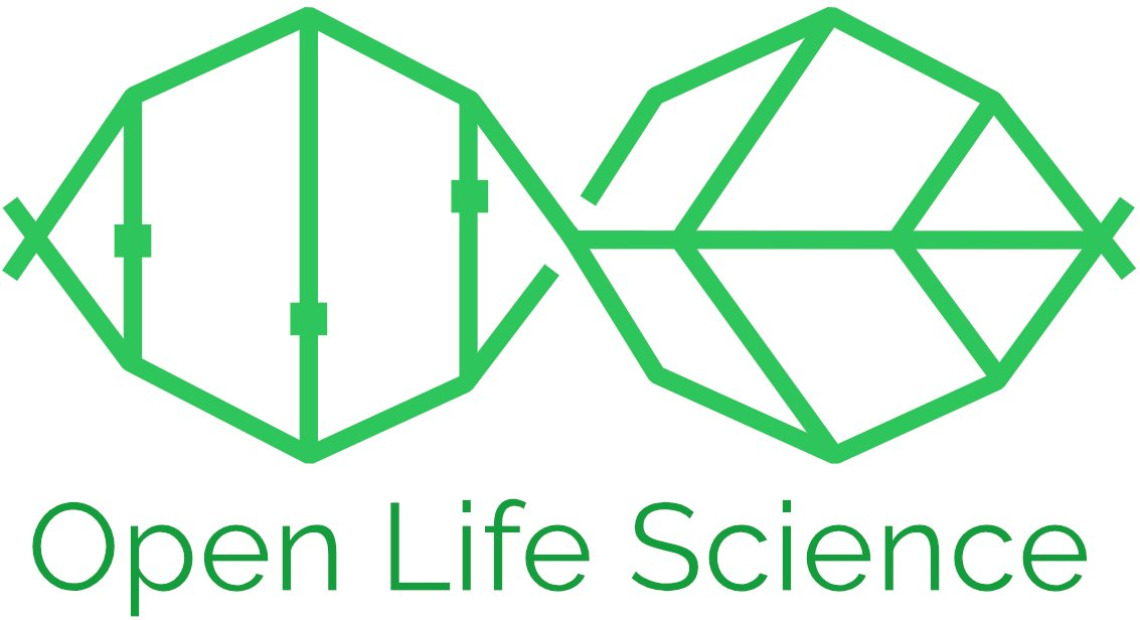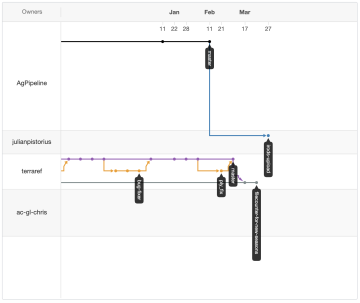Successful Completion of Open Life Science Program!

Our group has successfully completed the Open Life Science (OLS) program, which we previously wrote about getting accepted to.
The purpose of OLS, an offshoot of Mozilla Open Leaders, is to improve open science practices within life sciences communities. The program is run by Yo Yehudi, Malvika Sharan, and Bérénice Batut, all of whom we got to know during OLS.
In this first cohort, there were 29 mentees with 20 mentors. Throughout the program, the mentees would meet every other week with their mentor to discuss their project and next steps. Our mentor was Katrin Leinweber, who had a lot of useful insights to share with us.

On opposing weeks, the mentees met collectively with the organizers. These cohort meetings included lots of excellent guest speaker talks, such as Karin Lagesen on codes of conduct, Alex Chan on designing for inclusion, and Josh Simmons on open licensing. Then to summarize and celebrate everyone's progress during the 18 weeks of the program, all of the mentees delivered short presentations, which are on YouTube.
The OLS program went above and beyond our expectations. There was so much knowledge sharing and networking that went beyond just how to do science openly to how to build up a community around open science products. We learned so much about consistently having a community-first perspective, including designing for openness and inclusivity from the beginning of a project, which we will implement in our work. In particular, having and enforcing a Code of Conduct was an important takeaway from the program.
Our group, which provides and maintains software and data for agricultural research, had several overall goals for the program. We are constantly working to make our products more accessible and usable to anyone who would benefit from them. To do so, we need to identify our users and their needs, and how to fulfill them. We additionally want to enable users to be able to contribute back to this software and data based on their invaluable experiences.
For OLS, we decided to focus on making these kinds of improvements on the documentation for our drone processing pipeline. This was a great opportunity for learning more about how to do this and implementing some productive changes. These are summarized below, and also in our final OLS presentation.
We made progress on organizing the already dense and complicated documentation available for the drone processing pipeline so that it is more intuitive and usable. We decided that the main website for the project should be the OLS wiki for the pipeline, with the main landing page for users being the home page. This links to the code base and community health files in repos in the GitHub organization, which then links to more technical documentation aimed primarily at developers.
We additionally had a chance to sit down and talk to one of the users of a similar pipeline. He had insightful comments on its usability, including that having a more experienced user to talk to was crucial and that the number of technical tools one needs to be familiar with is substantial. We are planning on having future such conversations with potential and actual users and developers of the pipeline, so that we can identify their successes and pain points with the pipeline documentation.
One of the most useful assignments we did during the program was to create some personas for the pipeline using a guide by Mozilla. We created several personas, which are made-up potential users, and described their possible pathways of engagement with the project, from how they discover it to how they could become a leader. We'll be adding these to the pipeline main website soon.
Our group at University of Arizona had an excellent experience with OLS. We learned a lot and are excited to keep building the communities around our datasets and software. We met a lot of great people doing interesting work through this program. All mentees in our cohort are working on diverse, interesting projects, including running a Twitter account that curates biodiversity knowledge by Bruno Soares and Naraiana Benone and creating an open science culture by Chiara Bertipaglia, amongst many others. Check them out. And if this program sounds like a good fit for you, see the Open Life Science website for information about applications for the second year of OLS!

